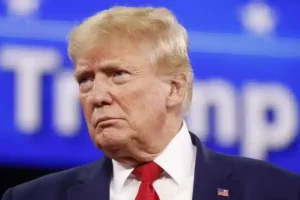
Michel Barnier has stepped down as France’s Prime Minister following a no-confidence vote that ousted his government. The vote, held yesterday, marked the end of a tumultuous three-month tenure—the shortest for any prime minister in modern French history.
Barnier’s resignation throws France into a state of political uncertainty as President Emmanuel Macron scrambles to appoint a replacement amid mounting pressure to stabilize his administration. Until a new government is formed, Barnier and his cabinet will continue in a caretaker capacity.
Macron’s Next Steps
President Macron has already begun consultations with political allies and parliamentary leaders in search of a swift replacement. According to sources close to the presidency, Macron is keen to appoint a new prime minister before the much-anticipated reopening ceremony of Notre-Dame Cathedral this Saturday.
Among the contenders reportedly under consideration is François Bayrou, leader of the centrist MoDem party and a long-time ally of Macron. Bayrou’s potential nomination has been highlighted by French media outlets, including Le Parisien, as Macron looks for a figure capable of navigating France’s increasingly fractured political landscape.
The Parliamentary Deadlock
The current crisis stems from the fragmented nature of France’s National Assembly, which emerged from the summer elections. Macron’s centrist Ensemble coalition failed to secure a majority, holding just 245 seats out of the 577-seat parliament. The left-wing Popular Front alliance, led by Jean-Luc Mélenchon, captured 193 seats but fell short of the 289 required for a majority. Meanwhile, the conservative Republicans hold 47 seats, and Marine Le Pen’s far-right National Rally controls 89.
Although Barnier had managed to govern through a tenuous partnership between Macron’s Ensemble coalition and the Republicans, his administration faced insurmountable opposition. In a surprising twist, an alliance between the Popular Front and the National Rally united to pass the no-confidence motion, toppling Barnier’s government.
Macron’s Weakened Position
While the collapse of Barnier’s government underscores the challenges of governing a divided parliament, Macron’s presidency remains secure. French constitutional rules make it nearly impossible to remove a sitting president without the extraordinary agreement of two-thirds of parliamentarians—an outcome considered highly unlikely given the current political divisions.
Macron, who was re-elected in 2022, has until 2027 to steer his administration through the complexities of a fragmented legislature. However, the political turmoil has underscored his weakened authority and the fragile state of his coalition.
What’s Next?
As the clock ticks toward the reopening of Notre-Dame Cathedral, Macron faces a critical decision that could shape the trajectory of his presidency. The choice of a new prime minister will not only reflect Macron’s ability to manage political alliances but also set the tone for how his government addresses pressing issues such as inflation, social inequality, and France’s energy crisis.
For now, all eyes are on Macron as he seeks to regain control and chart a new course for his embattled administration.





